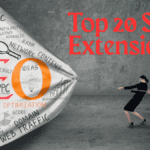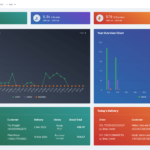Onpage seo Optimization service
Key Components of On Page Optimization
Onpage SEO is crucial for improving your website’s position in search rankings. Unlike offpage SEO, which focuses on external links and signals, onpage optimization addresses internal factors that directly impact your site’s performance. Effective content optimization involves elements like meta descriptions, title tags, and text that are designed to enhance the relevance and quality of your content for search engines.
One of the most important aspects of onpage SEO is ensuring a solid plan and a detailed assessment of your website. Optimizing without a structured strategy or evidence-based plan can have the opposite effect, potentially harming keyword rankings and conversion rates. Consistent monitoring and analysis are necessary to track improvements and identify potential issues before they become a bigger problem.
Implementing Effective On Page Optimization
A successful onpage optimization strategy involves several key components. For instance, technical optimization like improving server speed and website load times is critical because search engines consider these factors when determining ranking purposes. Source code optimization can also improve Googlebot crawling efficiency by eliminating unnecessary code and enhancing the site’s overall performance.
Moreover, text optimization has evolved from simply focusing on keyword density to incorporating WDF*IDF, topic cluster analysis, and keyword clouds. These techniques ensure that content is relevant and covers a wider range of keywords. Additionally, elements like H- tags, bolding, and italicizing text elements help enhance the user experience and the visibility of important keywords.
Enhancing Website Structure and Navigation
The structure of your website plays a significant role in its optimization. Internal linking is vital for both search engine crawlers and users, as it helps guide visitors to the most relevant pages and improves the crawl depth. A well-organized menu structure with clear sub-pages and an efficient sitemap allows search engines to index your site properly.
Other important structural elements include URL structure, which should be search engine-friendly and logically related to the content of the page. Using robots metatag and noindex tags for pages that are irrelevant or don’t add value to your search engine rankings is also a strategic approach.



